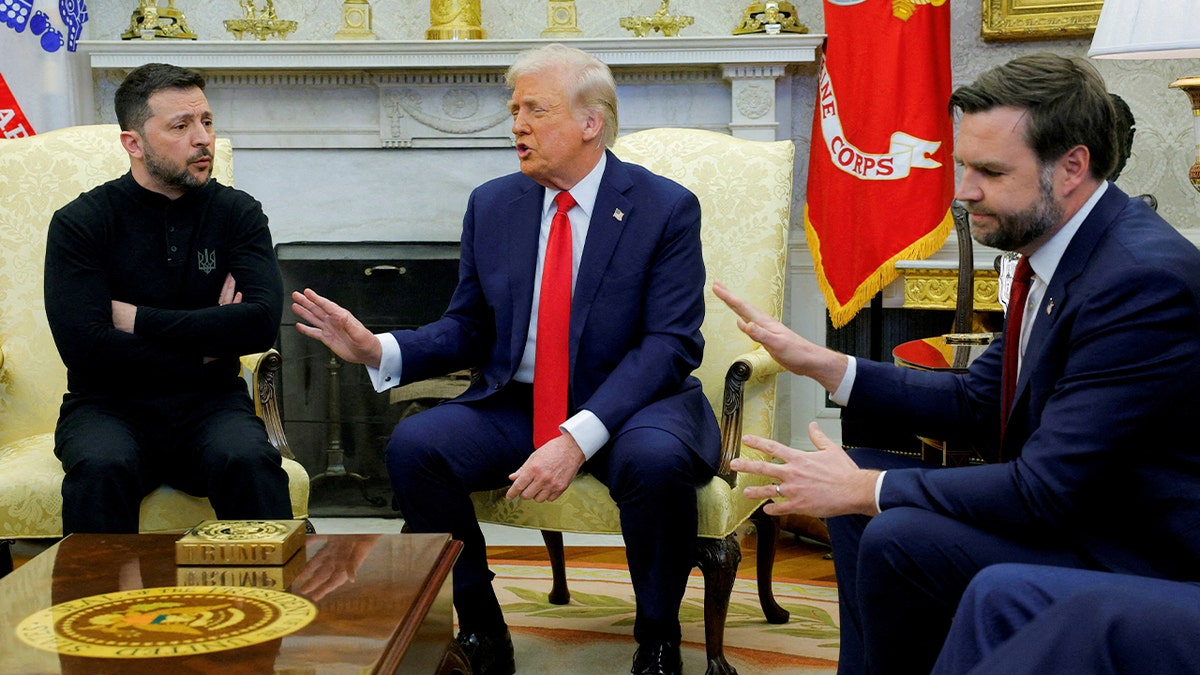OPEC+ To Review Quotas: Impact On Global Oil Prices

Table of Contents
Current Global Oil Market Dynamics
The global oil market is a complex interplay of supply, demand, and geopolitical factors. Currently, several key elements are shaping the landscape. Supply is constrained by production capacity limitations, particularly after sanctions imposed on Russian oil following the Ukraine conflict. Geopolitical instability in various oil-producing regions further adds to the uncertainty. On the demand side, global economic growth, particularly in Asia, fuels consumption. However, the ongoing energy transition, with increasing adoption of renewable energy sources, is exerting a moderating influence on long-term demand.
- Current OPEC+ production quotas: The existing quotas represent a delicate balance between member nations' interests and the need to maintain market stability. Any changes to these quotas will have significant ramifications.
- Global oil demand forecasts: Forecasts for global oil demand vary depending on the projected pace of economic growth and the speed of the energy transition. These forecasts are crucial in OPEC+'s decision-making process.
- Impact of sanctions on Russian oil production: Sanctions on Russian oil have significantly disrupted global supply chains, leading to price volatility and impacting the availability of crude oil in the international market. This factor plays a major role in OPEC+'s calculations.
- Inventory levels and their influence: Current global oil inventories are another key factor. High inventories might encourage OPEC+ to maintain or even increase production, while low inventories could lead to a decision to restrict output.
- Influence of alternative energy sources: The growing adoption of renewable energy sources like solar and wind power is gradually reducing the world's dependence on fossil fuels. This long-term trend influences OPEC+'s strategic planning.
Factors Influencing OPEC+'s Decision
OPEC+'s decision on production quotas is a complex calculation involving numerous interconnected factors. Internal disagreements among member nations, particularly between Saudi Arabia and Russia, often complicate the process. The global economic outlook, including growth projections and inflation rates, is a key consideration. Geopolitical events, such as conflicts or political instability in major oil-producing regions, also significantly influence the decision.
- Internal disagreements among OPEC+ members: Finding a consensus among such a diverse group of nations with varying economic and political interests is a constant challenge for OPEC+. This internal friction can lead to unpredictable outcomes.
- Global economic growth projections and their impact on oil demand: Strong global economic growth generally translates into higher oil demand, potentially encouraging OPEC+ to increase production. Conversely, weak growth might lead to a decision to maintain or even reduce output.
- Geopolitical risks and their influence on market stability: Geopolitical instability in major oil-producing regions can disrupt supply chains and increase price volatility, forcing OPEC+ to react strategically.
- The role of the US and other major oil consumers: The policies and actions of major oil-consuming nations, such as the US, significantly influence the global oil market and OPEC+'s decision-making.
- Analysis of the current inflationary environment: High inflation rates in many countries could lead OPEC+ to be cautious about increasing production, fearing that it could further fuel inflation.
Potential Scenarios and Their Impact on Oil Prices
The OPEC+ meeting could result in several different outcomes, each with significant implications for global oil prices. These scenarios range from a substantial increase in production quotas to a decision to maintain or even reduce output.
- Scenario 1: Increased production quotas: This scenario would likely lead to a decrease in oil prices, benefiting consumers but potentially hurting the revenue of OPEC+ member nations.
- Scenario 2: Maintaining current production quotas: Maintaining the status quo would likely result in relatively stable oil prices, although prices could still fluctuate based on other market forces.
- Scenario 3: Reduced production quotas: This scenario would likely lead to an increase in oil prices, potentially benefiting OPEC+ member nations but harming consumers and potentially slowing economic growth.
- Price volatility projections under each scenario: The degree of price volatility will vary significantly depending on the chosen scenario and the market's reaction. Reduced production quotas are likely to lead to greater price volatility.
- Impact on different sectors (e.g., transportation, aviation): Changes in oil prices have a direct impact on transportation costs, affecting everything from airfares to fuel costs for trucking and shipping. The aviation industry, in particular, is highly sensitive to oil price fluctuations.
Implications for Consumers and the Global Economy
The outcome of the OPEC+ meeting will have far-reaching consequences for consumers and the global economy. Changes in oil prices directly impact gasoline prices at the pump, influencing consumer spending and overall economic sentiment. Inflation rates are also heavily influenced by oil prices, affecting the cost of various goods and services. Economic growth in oil-dependent economies is directly tied to oil prices.
- Impact on gasoline prices: Higher oil prices translate directly into higher gasoline prices, impacting household budgets and potentially reducing consumer spending.
- Influence on inflation rates globally: Oil price increases are often a significant driver of inflation, impacting central banks' monetary policy decisions.
- Effect on economic growth in oil-dependent economies: Economies heavily reliant on oil production or consumption are particularly vulnerable to oil price fluctuations.
- Potential impact on consumer spending and overall economic sentiment: High oil prices can dampen consumer spending, leading to slower economic growth.
- Changes in energy sector investments: Oil price volatility affects investment decisions in the energy sector, influencing both fossil fuel and renewable energy projects.
Conclusion
The OPEC+ decision on production quotas will be a pivotal moment for the global oil market. The potential scenarios discussed, ranging from increased production to reduced output, will have a cascading effect on global oil prices, consumer spending, and global economic growth. Understanding the intricate interplay of factors influencing this decision is crucial.
Call to Action: Stay informed about the OPEC+ quota review and its impact on global oil prices. Follow our updates for the latest analysis and insights into OPEC+ production quotas and their market implications. Subscribe to our newsletter to receive timely alerts and in-depth reports.

Featured Posts
-
 Pokemon Tcg Pocket New Crown Zenith What New Cards Are Exciting Fans
May 29, 2025
Pokemon Tcg Pocket New Crown Zenith What New Cards Are Exciting Fans
May 29, 2025 -
 Jonathan Tah Transfer To Bayern Munich Confirmed Deal Details
May 29, 2025
Jonathan Tah Transfer To Bayern Munich Confirmed Deal Details
May 29, 2025 -
 Sinners Horror Movie Filming Location Louisiana Coming Soon To Theaters
May 29, 2025
Sinners Horror Movie Filming Location Louisiana Coming Soon To Theaters
May 29, 2025 -
 Istanbul Negotiations Lulas Push For Putin Zelenskyy Meeting
May 29, 2025
Istanbul Negotiations Lulas Push For Putin Zelenskyy Meeting
May 29, 2025 -
 Tah Completes Bayern Munich Move Contract Details And Analysis
May 29, 2025
Tah Completes Bayern Munich Move Contract Details And Analysis
May 29, 2025
